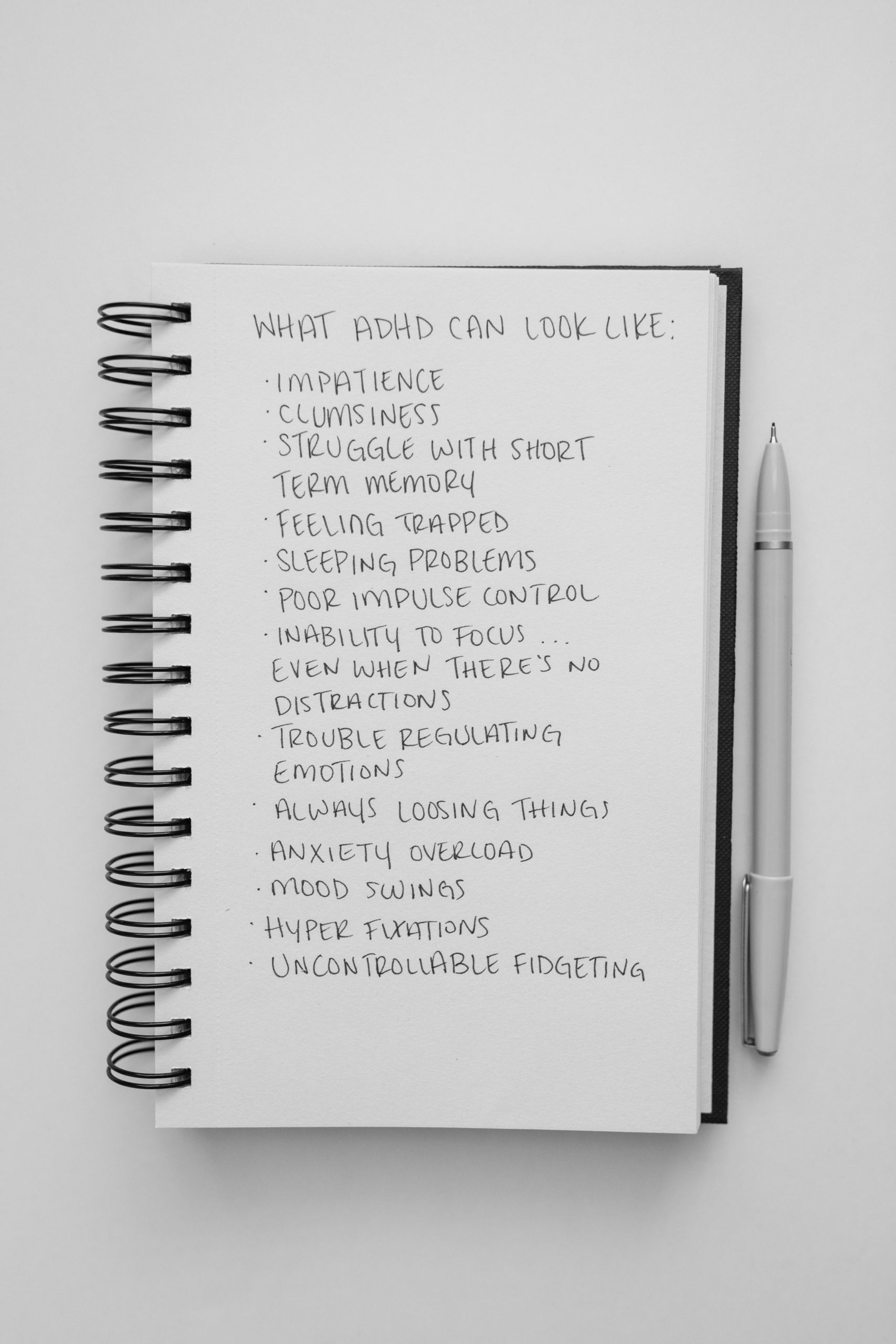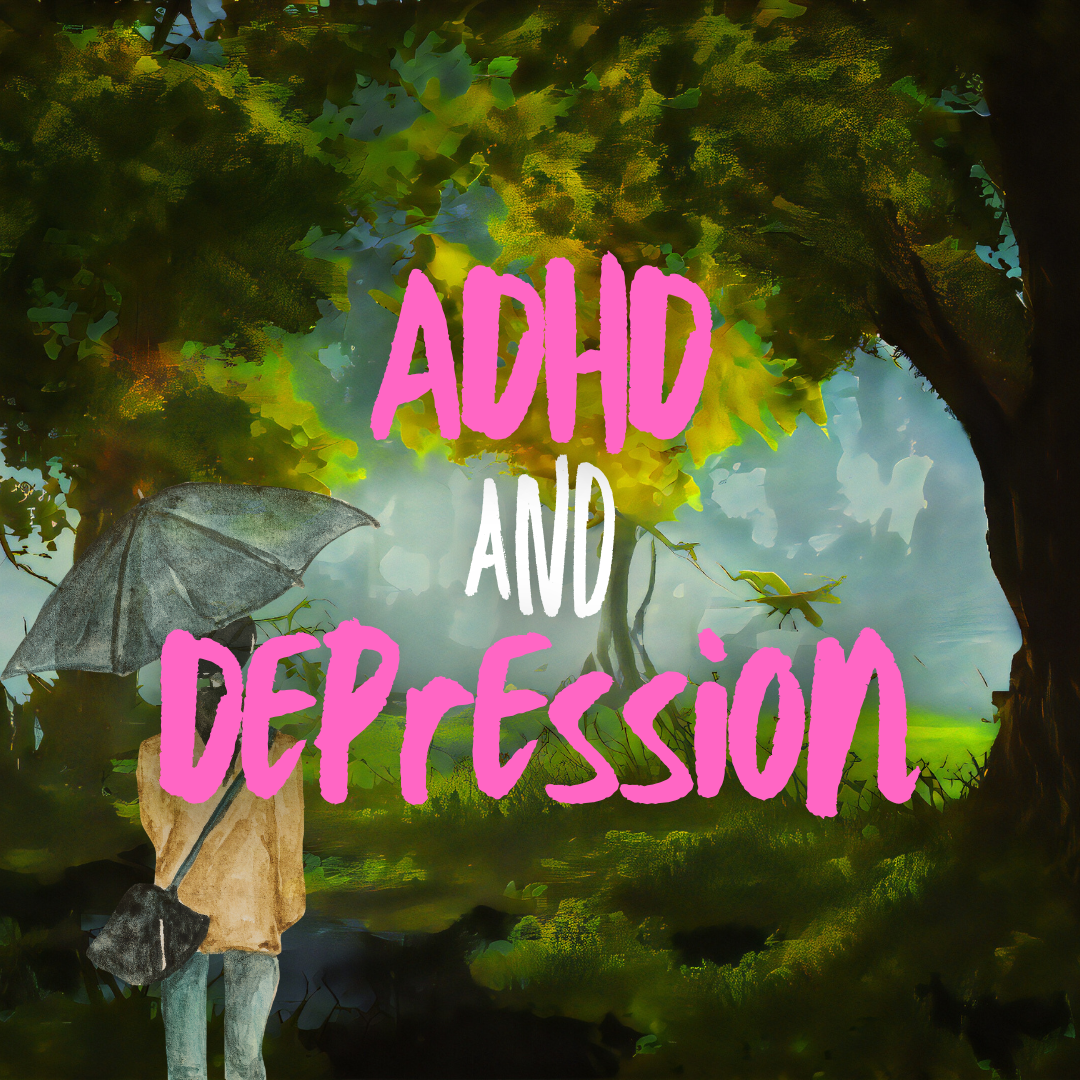Attention Deficit Hyperactivity Disorder (ADHD) is commonly associated with children, but it also affects adults. Often, symptoms in adults may not be as pronounced or might be mistaken for other issues, such as anxiety or mood disorders. Here are some signs that might indicate the presence of undiagnosed ADHD in adults:

Difficulty Concentrating
Difficulty Concentrating:
- Trouble sustaining attention in tasks or during conversations.
- Frequent daydreaming or becoming easily distracted.
- Difficulty following through on instructions or completing tasks.

Disorganization and Forgetfulness
Disorganization and Forgetfulness:
- Chronic lateness and poor time management.
- Frequently misplacing items or forgetting appointments.
- Struggling to organize tasks or activities.

Impulsivity
Impulsivity:
- Impulsive decisions or actions without considering the consequences.
- Interrupting others during conversations.
- Difficulty waiting for one’s turn in situations like standing in line.

Emotional Dysregulation
Emotional Dysregulation:
- Mood swings and irritability.
- Feeling overwhelmed by tasks or emotions.
- Low frustration tolerance and frequent feelings of stress.

Restlessness
Restlessness:
- An internal sense of restlessness, even if not outwardly hyperactive.
- Feeling unable to relax or sit still for extended periods.
- Engaging in multiple activities at once, often without finishing them.

Poor Performance at School or Work
Poor Performance at School or Work:
- Consistently missing deadlines or forgetting important details.
- Difficulty adhering to standard workplace protocols or academic requirements.
- Underachievement relative to one’s potential or abilities.

Relationship Issues
Relationship Issues:
- Difficulty listening to others or staying engaged in conversations.
- Forgetting commitments or social plans.
- Being perceived as unreliable by friends, family, or coworkers.

Procrastination and Avoidance
Procrastination and Avoidance:
- Chronic procrastination or avoidance of tasks that require sustained mental effort.
- Difficulty initiating or completing projects.
- Relying heavily on last-minute efforts to meet deadlines.

Substance Use Issues
Substance Use Issues:
- Higher likelihood of using substances to manage symptoms, such as caffeine, nicotine, or other drugs.
- Potential for developing habits or dependencies to cope with the difficulties caused by ADHD.

Low Self-Esteem
Low Self-Esteem:
- Frequent feelings of inadequacy or failure.
- Low motivation to engage in activities that require sustained effort.
- Sensitivity to criticism and a strong desire for approval from others.
See These Symptoms in Yourself?
It’s important to note that these symptoms can vary widely among individuals and can overlap with other conditions. If you or someone you know exhibits several of these signs, it might be helpful to consult with a healthcare professional for a thorough evaluation and potential diagnosis. Effective treatments, including medication, therapy, and lifestyle changes, can significantly improve the quality of life for those with ADHD.
Here at The MindCounsel, we take a comprehensive approach when diagnosing someone with ADHD: we use computerized testing, genetic testing, and a comprehensive interview to help us determine if you may have ADHD. If you are interested, please consider booking an appointment with us.

















